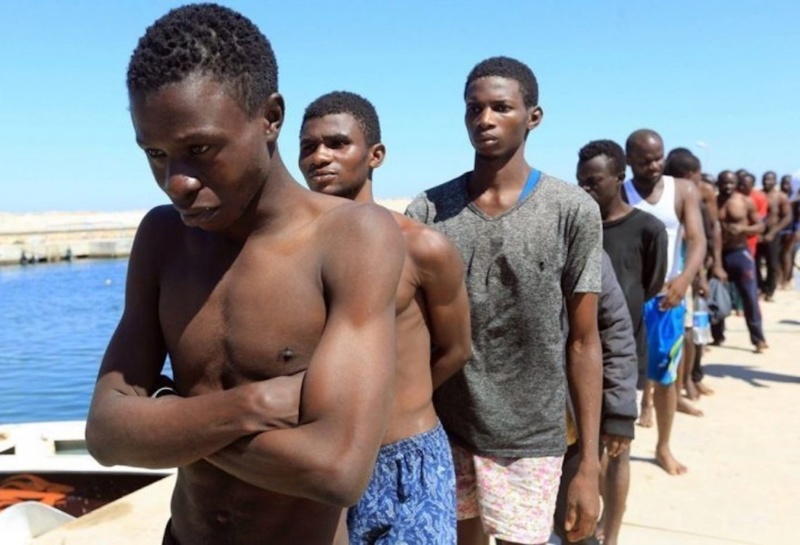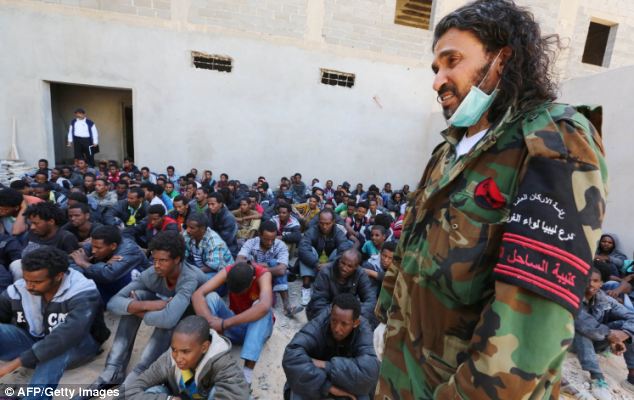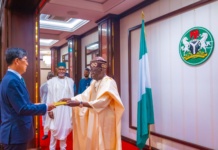By Peter Olorunnisomo – What must have surprised a lot of well-meaning nations, human rights groups, international organisations, and individual players on the world stage, regarding the Libyan slave market is the very fact that it took the CNN to report the trade, supposedly banned almost a hundred years with global endorsement, for notice to be taken.

In an age where superior technological advancement plays trump to information supply and the reliance on several orthodox or unorthodox tools of information gathering, it dares rational thinking to accept that the trade had been going for only a couple of weeks before it was noticed.
The presence of the western powers nosing about and around for information and military logistics of the Islamic Caliphate (ISIL) surely must have occasioned knowledge in some way about this development. Was it reported? Was it reported and neglected? Perhaps we will only know when the whole story has gone dry five years from now and someone, somewhere with a role in the complicity ‘annoys’ a world power.
Politicians and African zealots would argue that the very self same ‘convenient neglect’ of the story by the west, either of governments and/or media, has served the purposes of the international companies and governments who find it convenient to report the genocide ‘policy’ in Congo when the United Nations Peace Corps are attacked or when militarised rebel factions become ‘hydra-mutated’. But the benefit of cobalt to the world should not encourage capsizing the status quo.

That over 5 million are killed is not notable news; that the people’s natural endowment has become a natural ensnarement is not news worthy enough. It is reported that 48 females are raped in Congo every hour yet the integrity of international foreign policy on protection of ‘woman’ rights plies a different region of the world more like the rotational ascendancy to power in the emergent leadership concepts in contemporary African countries to find ‘peace’. The cry against female genital mutilation (FGM) adumbrated, lasted loud and long but the voice of the international media has gone hoarse crying for the Congolese women to whom FGM is a better option than the unprintable versions of rape.
At least, MPs have called on the British government to take urgent action to prevent African migrants being sold as slaves in Libya. The question to be asked is who are those benefitting from the trade?
Footage of young men being auctioned off as farm workers, broadcast by CNN, has prompted international outrage.
A debate on the issue, in the House of Commons, was triggered by a petition supported by celebrities including Cara Delevingne, Naomi Campbell and Stormzy.
The government says tackling modern-day slavery is a foreign policy priority. It is also a cardinal policy of the United Nations under the principle of ‘Freedoms’. And perhaps, the policy sits like a whole range Encyclopaedia immaculately adorning the executive office of some international and national leader.
Migrants trying to reach Europe have spoken of being held by smugglers and forced to work for little or no money.
The CNN footage showed migrants from Niger and other sub-Saharan countries being sold for about £300 each.
At a parliamentary debate on Monday, MPs accused the government of failing to persuade the authorities in Libya to crack down on the slave trade.
The Conservative MP Paul Scully said “I am asking the UK government to put pressure on the Libyan government to take immediate action to stop these criminals from selling more people, to set current prisoners free, arrest the criminals and end this.”
Labour’s Afzal Khan said the scenes from Libya were “shocking and horrific”.
Chris Law, of the Scottish National Party, said that while the UK Government’s approach to modern slavery had slowly improved in recent years, it now had to co-ordinate global action by ‘leading from the front’.
Jan Mukiibi, who is 19 and from London, attended one of the anti-slavery protests held in London earlier this month. She said it was important for Africans across the world to unite against any return to slavery.
She said: “The UK is one of the most powerful countries in the world, the government should intervene and send troops. What’s happening is immoral, we need to show we won’t stand for this.
“The debate is a step in the right direction but I still think more can be done, an injustice anywhere is an injustice everywhere.”
It would be interesting not to taint any country but to examine if the world is complicit in the benefits of a return to slavery by the self-same national policies where selective acquisition of individuals, seduced and induced by the offers that litter their tables because of the talents they have, needed in the developed world. Perhaps it is just down to foreign policy analysis and national interests. The sad thing is that those nations whose citizens supply Libya with ‘slaves’ do not appear to have a foreign policy or perhaps theirs also align with the rest of the world’s – book-full of letters immaculately adorning executive offices.
Kindly follow us on twitter:@AfricanVoice2










